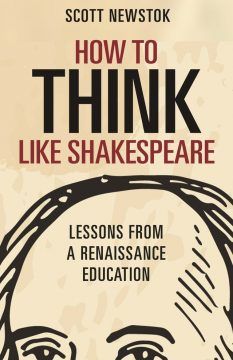Scott Jaschik in Inside Higher Ed:
 Scott Newstok’s new book, How to Think Like Shakespeare: Lessons From a Renaissance Education (Princeton University Press), is about more than the Bard. It’s a challenge to the ideas that education is strictly about what you can assess or data that will lead to jobs. Newstok clearly believes, though, that an education on Shakespeare will help many people — and not just English majors — with their careers.
Scott Newstok’s new book, How to Think Like Shakespeare: Lessons From a Renaissance Education (Princeton University Press), is about more than the Bard. It’s a challenge to the ideas that education is strictly about what you can assess or data that will lead to jobs. Newstok clearly believes, though, that an education on Shakespeare will help many people — and not just English majors — with their careers.
Newstok, a professor of English at Rhodes College, responded via email to questions about his book.
Q: What was your goal in writing this book?
A: As both a teacher and a parent of school-age children, I’d become dismayed by the way we think of thinking. Many of our educational assumptions are just plain false. Yet I hope that recalling enduring practices can help us — maybe our institutions, but at least those individuals still interested in thinking. My book explores the educational assumptions that shaped a mind like Shakespeare’s: play emerges through work, creativity through imitation, autonomy through tradition, innovation through constraints, freedom through discipline.
More here.
